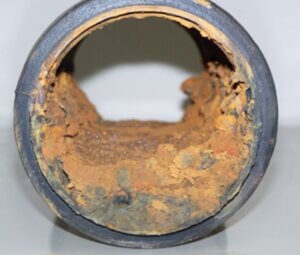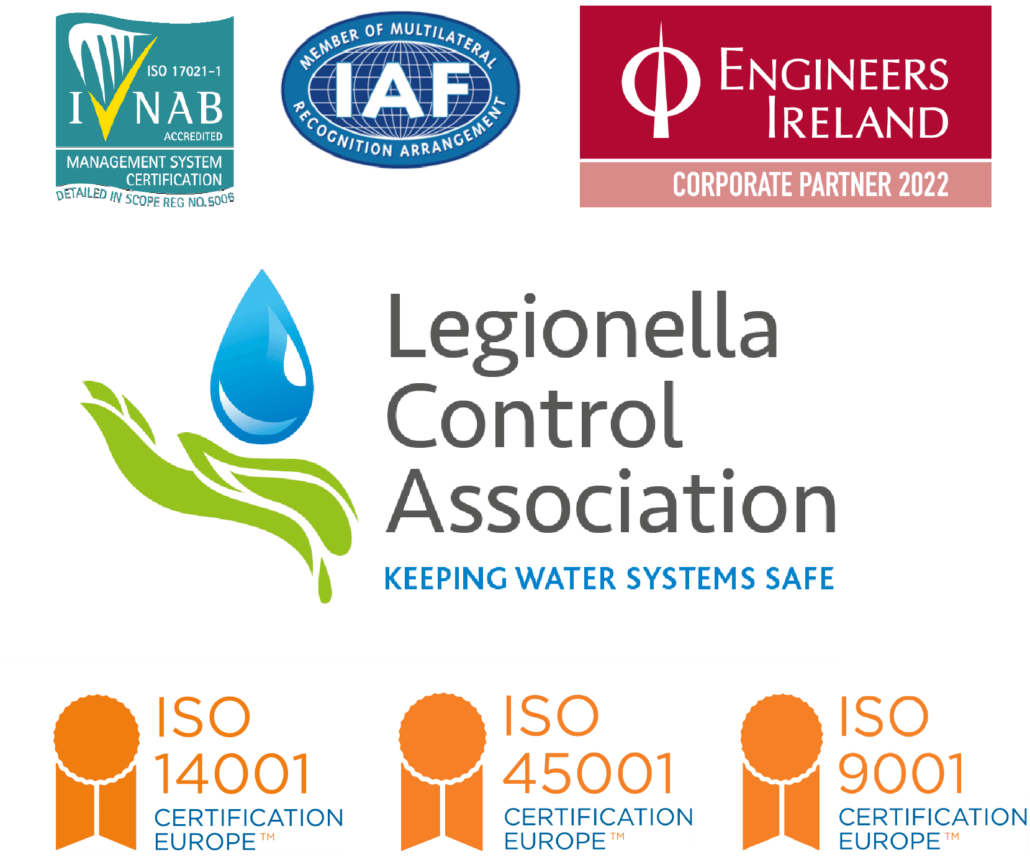Corroded water systems can cause a number of issues that ultimately lead to systems failure. It is almost impossible to prevent corrosion completely due to the natural chemical reactions between the pipe work and the environment., but there several things that can be done to help prevent it.
Before we look at these you need understand what corrosion is. Corrosion in pipework is simply a deterioration of the pipe’s surface. The most notable type of corrosion is metal rusting where iron oxide is produced in response to a reaction between oxygen and water. The oxide weakens the bonds of the metal, resulting in a brittle and crumbly structure.
A number of problems can be raised due to corrosion in your water system, these can range from mild to severe, depending on the corrosion levels and rate of corrosion in the pipework or water tanks.
Below is listed some of the most common effects of corrosion in water systems;
- Health problems
The corrosion of copper and lead pipes in particular is incredibly dangerous as it can release metal composites into the water supply and put the consumer at risk of toxicity.
- Decreased Efficiency
The presence of rusting and oxidisation of metals reduce the water flow and even completely destroy valves and other components.
- Failure of the entire System
Pipework that suffers from heavy corrosion will have reduced metal thickness and a weaker structure., this is especially problematic for thin walled pipes. The leaks as a result of this could mean a failure of the entire water system and significant damage to the building.
- Straining and reduced water quality
The water quality will be significantly reduced and the increased concentrations of metal composites often impart a bitter taste to the water. The staining of pipes, basins and drains is a tell-tale sign that corrosion is present.
What can aide corrosion developing
Before you know how to help prevent corrosion you need to know what to look out for;
- Thickness and material of the pipe (thinner walled pipes are more susceptible to corrosion)
- Metal pipework is prone to corrosion. Modern pipework is commonly made from copper, although in older buildings it is still possible to find steel, iron and lead pipes. Copper is less corrosive than other metals but that does not mean that it isn’t vulnerable to it.
- Age of the water system
- Stagnation time of the water within pipework
- PH, temperature, oxygen and mineral concentrations of the water
- Microbiological outbreak, such as legionella
- Presence of sand, sediment and other suspended solids

5 ways to help prevent corrosion
1. Pre-commission cleaning
The time between a new installation of pipework and its first use i.e. comission is a critical period. At this stage, cleaning the system will significantly increase its safety and longevity in the long run. This is because components like valves can be cleaned before they are put into their set positions, and any debris or dirt left in the pipework during the installation process can be fully removed.
2. Analysis
Knowing what materials the pipes are made from and the quality of the water flowing through them is the first step in understanding how to prevent corrosion in water systems. Not all systems are the same and the water flowing through the systems differs depending on the area and the source of the water.
3. Water treatment & pipe cleaning
A number of water treatment solutions are available to help in the prevention and treatment of corrosion within water systems, including both biological and chemical treatments.
Any metal exposed to corrosive bacteria becomes prone to MIC (Microbiologically Induced Corrosion). Cleaning your pipes from time to time will avoid corrosive bacteria build-up, more so for pipes that frequently interact with sulfides. Biocides and other microbial inhibitors are a good way of keeping pipes clean.
4. Monitor Water Pressure
High water pressures and immense pipe stress go together. Subjecting pipes to a big deal of stress edges them a step closer to corrosion. This means that any inconsistent or high water pressure issue needs to be addressed as soon as possible.
5. Keep an Eye on Your Water
Particularly in copper pipes, water is a major cause of corrosion whereby low PH levels damage pipe lining. Frequent water sampling and testing will let you know if there are any irregularities in your water.
Each and every system is unique, and the control methods you choose will depend on many different factors; from pipework material, structure and extent of risk.
Due to the complexity of this task, it is recommended that you work with a specialist who has the industry knowledge to carry out a professional analysis.
Contact us to find out how we can help you with your water treatment requirements.







